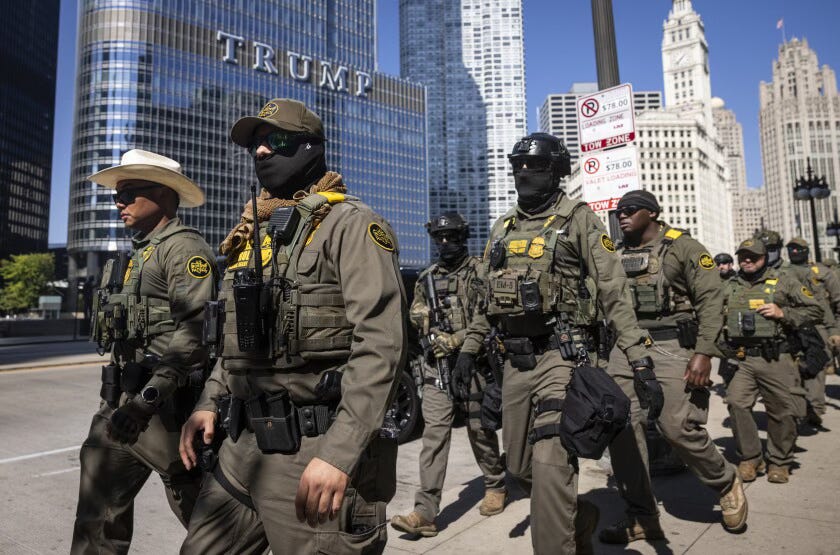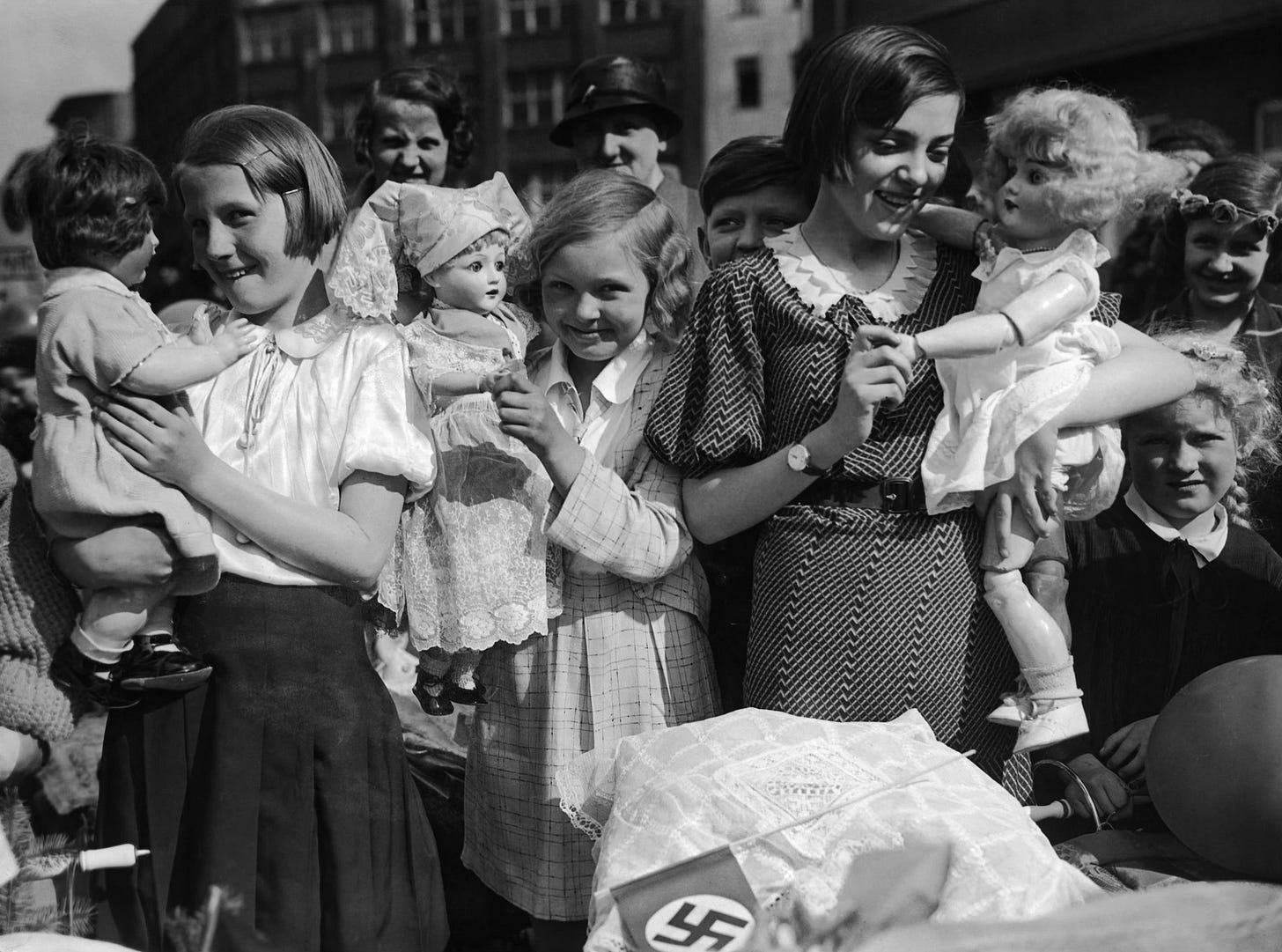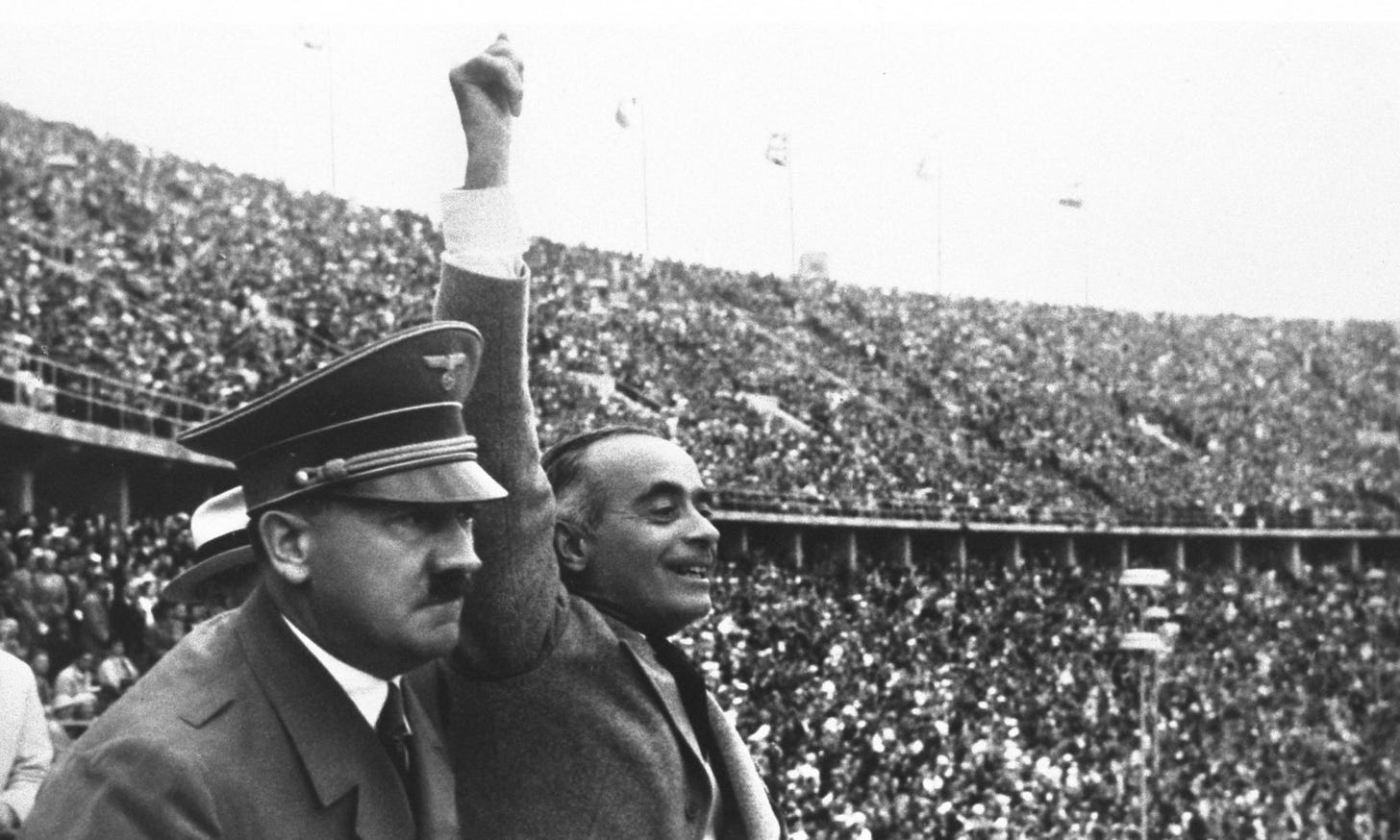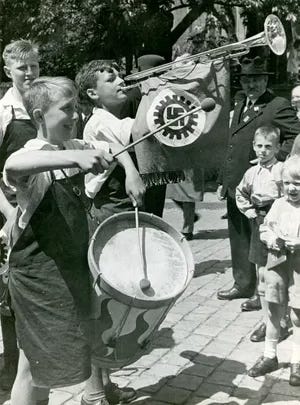A Thought on Normalcy in Fascism
Fascism does not break normal life, it feeds on it.

In Nazi Germany people kept living their everyday lives while fascism swallowed their country. Bread was bought, children played, people dated, movies played in theaters. This is how fascism thrives. It does not interrupt normal life, it depends on it. The ordinary becomes its camouflage, the daily routine its accomplice.
And if it feels normal right now, that should terrify you.
I thought about this while watching the MLB playoffs tonight, the Cubs game murmuring in the background as I scrolled through the news.
Last night in Chicago, the illusion of normal was on full display. On one side of the city tens of thousands gathered to watch the Cubs in the playoffs, waving their flags, drinking their beer, chanting as though the crack of a bat could cleanse the air of anything heavier than the smell of hot dogs. But while the stadium shook with noise, the South Shore shook with something else entirely.
The first sound was the doors. Wood splintering, locks cracking, hinges surrendering in the dark. Then came the ICE boots. Heavy and unhurried, striking the stairwells like war drums. The children were still deep in their dreams, pulled into the waking world by hands that did not belong to their loved ones. Pajamas twisted, blankets yanked, bare feet on cold tile. Some were dragged outside half-naked, their small bodies shivering in the October air, eyes wide and glassy in the glare of flashlights.
Families stumbled into the street, the whole building emptied as if fire had gutted it. Parents screamed names, clutched arms, begged for mercy from the masked men. All while being zip tied—including the children.
Overhead, helicopters shredded the night sky. A Blackhawk dropped low, its rotors rattling windows, the block shaking under its shadow. The spotlight painted the street in white heat, turning neighbors into silhouettes, children into casualties. The sound drowned every cry, every plea, until the neighborhood itself seemed to tremble.
I’m not describing a scene from a film. This was South Shore, a Black neighborhood already carrying the long sigh of history, now made to feel like a battlefield. ICE moved with mechanical indifference, dragging bodies as though they were items from a shelf, filling vans as if they were nothing more than cargo.
This is how the night was stitched together in the social media videos I watched and the interviews I read.
But millions will treat Chicago baseball as if it were the only story of the evening in that city, and to do so is to participate in the same dangerous normalcy that allowed fascism to grow in Germany. Even during the rise of the Nazis, people needed their distractions, their small pleasures, their sense of continuity. The violence was not hidden, it was simply incorporated. Jewish neighbors were harassed, then disappeared. Romani neighbors were driven away. Disabled people vanished. And yet the streets still bustled, the shops still opened, the people still laughed. That was the genius of the regime: it allowed life to look familiar enough that many convinced themselves nothing had truly changed.


This is how fascism works. It does not always roar, it whispers. It seeps into the cracks of the ordinary, asking only that you look away from the parts that do not concern you. That you focus on the game, the meal, the errand, and let the rest fade into background noise. In this way, cruelty becomes just another fact of life, as unremarkable as the weather.
I do not begrudge anyone moments of joy. Joy is necessary. It is survival. For Black people in America, joy has always been a weapon against despair. We have always known how to laugh, how to sing, how to make beauty when the world insists on ugliness. But there is a line between joy that sustains us and joy that makes us ignorant. To lose ourselves in celebration while families are ripped apart a few miles away is to accept the very terms that fascism offers: popcorn and entertainment in exchange for silence.
The Cubs will win or lose. Their season will end, their fans will turn to other distractions, and the machinery of enforcement will continue grinding on. To cheer as though the raid never happened, to shrug as though the city is not split in two, is to mistake anesthetic for freedom. Normalcy has always been fascism’s greatest weapon. It was in Germany, and it is in America now.
If today feels normal to you, if you can convince yourself that the sound of crowds matters more than the cries of children being led into the street, then you are already living in the cocoon that allows fascism to harden. The lesson is not to abandon joy, but to refuse to let joy erase reality. To understand that the lives we want—the laughter, the games, the peace—are the very lives denied to those seized in the dark. The danger is not only in the agents at the door, it is in the neighbors who look away, in the fans who choose the roar of a stadium over the wail of a neighbor.
History has already shown us how this story unfolds. Fascism is not built only in the camps and cells. It is built in the shrug, the silence, the insistence that life can go on as if nothing has changed.




I’m surrounded by people who are looking away. I call them out, I ask them how they can pretend nothing is happening. They tell me it’s too much and they are powerless so why bother paying attention. I tell them stop obeying in advance, they are not powerless. They say they don’t want the stress and fear. And then they walk away from me.
It’s so disheartening.
Thank you for reminding me that even if I’m on an island, I’m not alone in not feeling normal, at all.
True and powerful. Thanks for this post, Frederick.